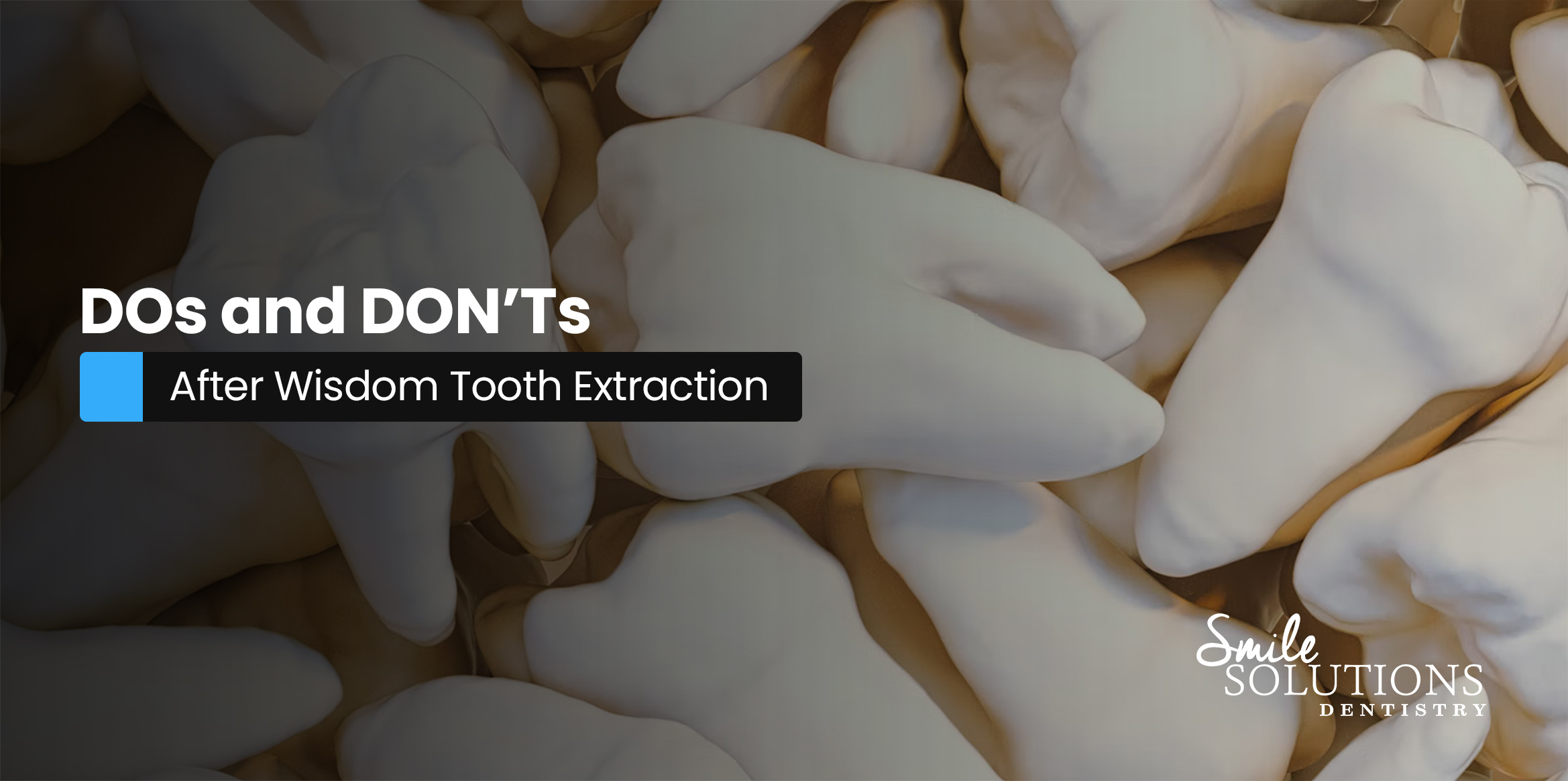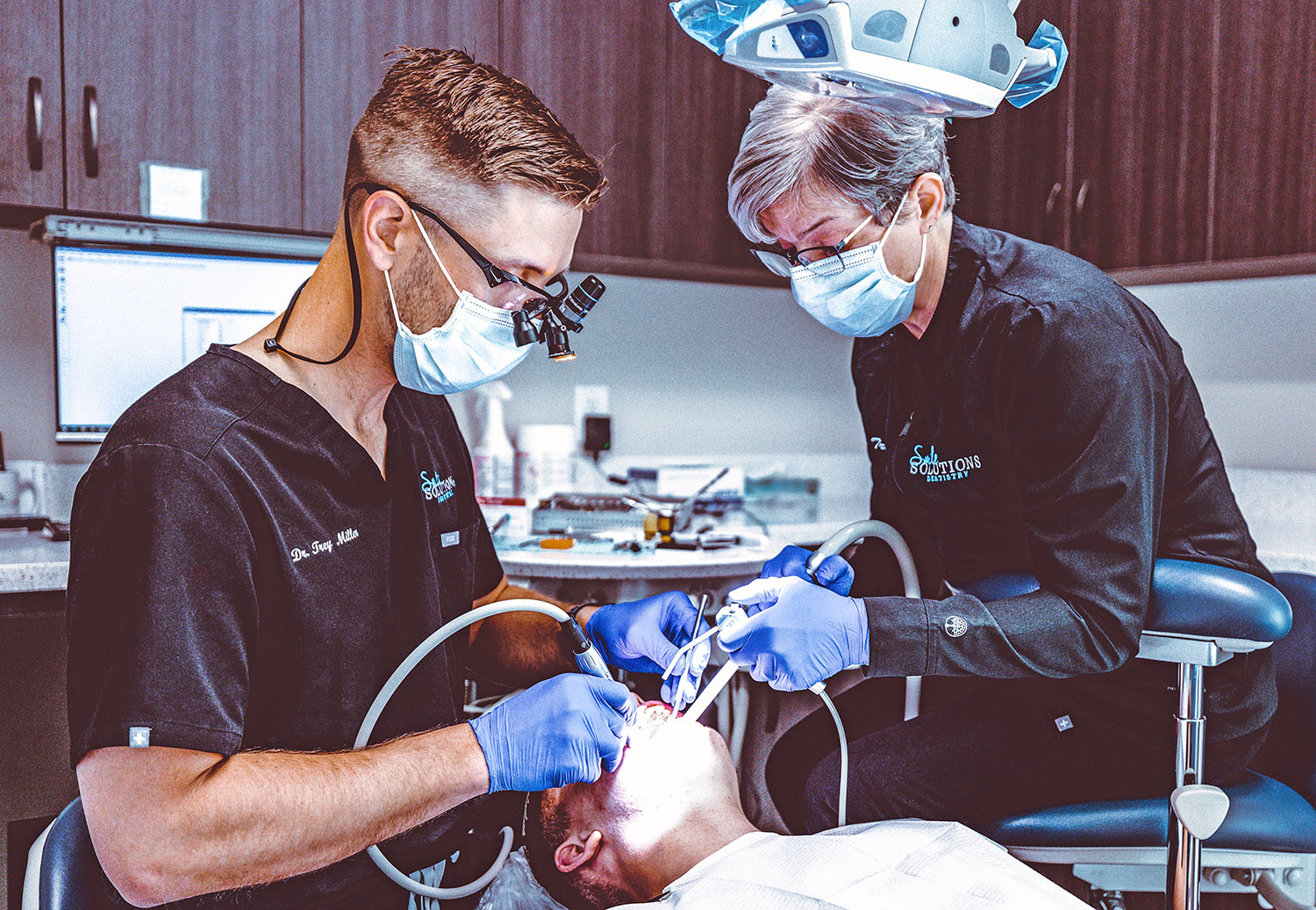Dos and Don’ts After Wisdom Tooth Extraction
Wisdom teeth are the third set of molars that protrude near the back of the mouth behind a person’s adult molars. Not everyone gets them, but many that do, commit to having them extracted. It’s often because there’s not enough room to accommodate another set of molars. This can cause what’s called “an impacted tooth”—usually followed with pain and even infection.
Why Get a Tooth Extraction?
It’s common for your dentist to monitor the development of your wisdom teeth during routine cleanings and exams. They will suggest surgery if the wisdom teeth become impacted or infected, or if there is a chance they might cause problems in the future.
It can sometimes be a challenge to maintain good oral hygiene with hard-to-reach wisdom teeth, which is where the trouble usually begins.
Before, During, and After Surgery
Before scheduling surgery, you’ll meet with the oral surgeon or a dentist. At this appointment, you’ll go through:
• Health issues you might have
• Any drugs you take regularly
• Type of anesthesia you prefer
• The procedure itself
Because it can take a few days for you to recover from wisdom tooth surgery, plan ahead for your time off from work and/or school.
In most cases, the surgery itself is short and painless.
DON’TS After Wisdom Tooth Extraction
Let’s begin with the don’ts since this is where people tend to slip up after surgery.
Avoid Crunchy Foods
Avoid foods such as popcorn, nuts, and potato chips for at least a week after the surgery.
Don’t Rinse Too Vigorously
The pressure from rinsing can damage the clot and lead to complications. It is advised to rinse your mouth gently with saltwater.
Avoid Using a Straw
It’s important to maintain the blood clot that forms over the wisdom tooth extraction site. Any kind of “sucking” can dislodge the clot, resulting in what is called a dry socket.
Discontinue Ice Therapy
You should switch from icing to heating after the first 48 hours. Heat can soothe, as well as promote healing.
Don’t Smoke or Drink
Nicotine products can delay healing because the nicotine (as well as the sucking action itself) can negatively affect the clot. As for alcoholic beverages, they are not to be mixed with the medicine you’ll be prescribed, and they can also delay the healing process.
Avoid Coughing or Sneezing
Coughing and sneezing can also prolong the healing process. If you have any allergies, make sure to mention them to your dentist before the surgery so he or she can prescribe the appropriate medicine to keep your allergies under control.
Don’t Brush Teeth for 24 Hours
Avoid brushing for 24-48 hours after surgery.
DOS After Wisdom Tooth Extraction
Limit Exercise
Even though you may feel great after the surgery, you may still want to skip on exercise for a while—especially for the first 7 days after surgery. Exercise can elevate blood pressure, which can cause your clot to dislodge.
Elevate Your Head
When resting, try to keep your head above heart level, which helps reduce swelling.
Use Ice Packs
Icing for 24 hours (15-20 minutes every hour) will reduce pain and minimize swelling.
Perform Jaw Exercises
Gently open and close your mouth to help with swelling and recovery.
Remain On a Liquid Diet
It’s best to avoid solids and stick with soft or liquid foods like soups, yogurts, and smoothies. Transition to harder food as the extraction site heals.
Take Pain Medication (If Needed)
Pain medication can be helpful as needed, but be reserved with how much and how often you take it—especially if there is little or no pain. If your dentist prescribed antibiotics, it’s essential to take them regularly to prevent inflammation.
Potential Risks
Most wisdom teeth extractions rarely result in long-term complications. Still, if you don’t follow your dentist’s instructions, there is room for potential risk and complications.
Those can include:
• Dry socket(s)
• Irritated nerves
• Sinus problems
• And the big one: Infection
Final Thoughts
Wisdom teeth extraction is a very common, safe procedure. For a successful recovery, make sure to follow all the post-op instructions regarding dos and don’ts after the extraction. You’ll be able to recover within a week or less, and feel yourself again. If you have any additional questions, schedule a call with our team. We’d be happy to any questions you might have.



